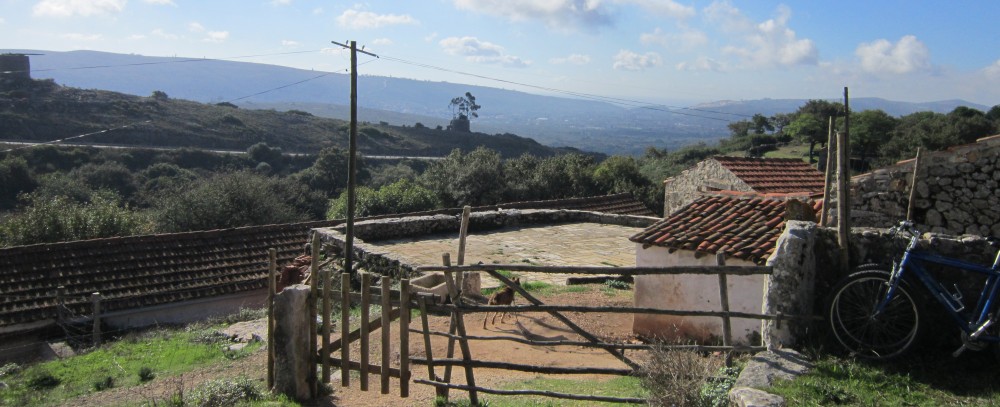Since 2011 I am a member of Polish Society for the Protection of Birds. When I found out, that one of Vertigem’s activity is birdwatching I was really pleased. I’ve realised that it could be great chance for me to get some informations about birds which appear in Portugal.
Few times a month all Vertigem’s volunteers go to the mountains, forests or lakes to registrate wild birds. With binoculars and books about birds we try to spot and recognize some species (with vocalization or observation methodes). With greater or lesser effects:) 
By participation with those kind of activities I had chance to see for myself some birds, which we don’t have in Poland, because usually they breeds naturally in western Europe or in other places in the world, but not in my country.
One of those species is for example Sylvia undata (Dartford warbler) which is very common here. It’s small passerine bird with characteristic long tail. Also Alectoris rufa (Red-legged partridge) is very popular in this part of Europe, but I had to came to Portugal to see this colourful gamebird. Still, I hope to registrate other species that don’t appear in Poland, but just few days left to do this. I have to try harder 🙂
Kasia






 We also wanted to make something special from Poland,but here it´s really difficult to buy ingredients that we need. That´s way we just made some polish cookies. But they liked them, few people even asked for recipe 🙂
We also wanted to make something special from Poland,but here it´s really difficult to buy ingredients that we need. That´s way we just made some polish cookies. But they liked them, few people even asked for recipe 🙂
 Marilyn arrived here in July and she´s staying in Portugal all year. Armelle from France came one month before us and Jeroen from Belgium arrived just one day before our arriving,so for our three everything was new and we start getting know everything together. Armelle and Jeroen are also longterm volunteers. On All Saints Day two Turkish guys joined us. They will stay here for six months. Our group is getting bigger! Now Jeroen isn´t only one man here. We leveled out the playing field 😉
Marilyn arrived here in July and she´s staying in Portugal all year. Armelle from France came one month before us and Jeroen from Belgium arrived just one day before our arriving,so for our three everything was new and we start getting know everything together. Armelle and Jeroen are also longterm volunteers. On All Saints Day two Turkish guys joined us. They will stay here for six months. Our group is getting bigger! Now Jeroen isn´t only one man here. We leveled out the playing field 😉






















